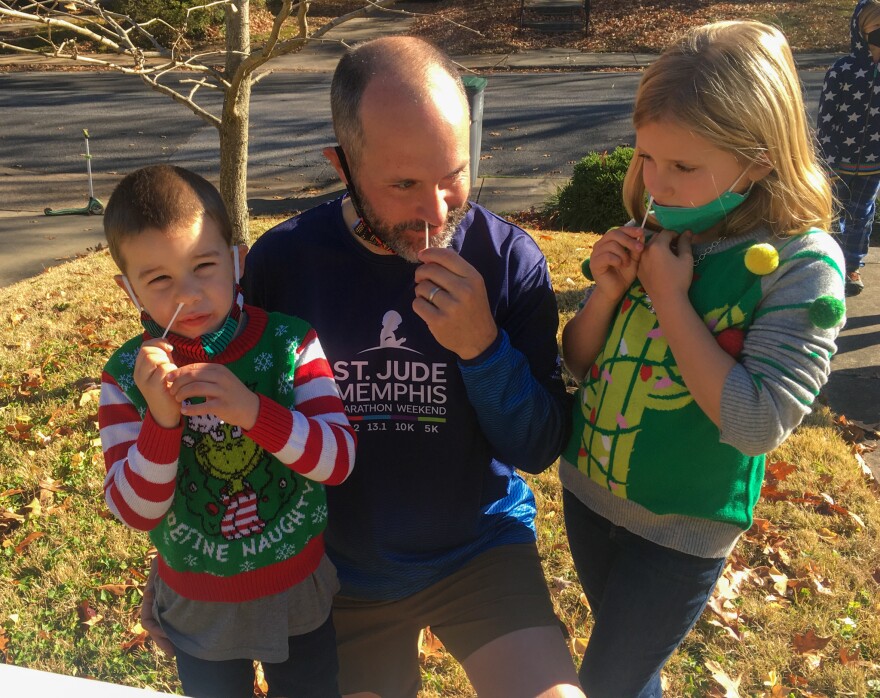On a recent Saturday, a group of masked neighbors living on Buena Vista Street in Midtown Memphis congregate—at a distance, of course— on Jeff Warren’s front yard.
“We hope to be the Buena Vista model,” says Warren, who is a medical doctor and a member of the City Council.
He means a model for what’s called assurance or surveillance testing. Since mid-November, Warren has been setting up a weekly, mini COVID-19 testing operation in front of his house. Here, the tight-knit residents of the neighborhood—along with their co-mingling children—test for the virus as a group. It’s a strategy to catch asymptomatic carriers of the virus and hopefully reduce spread.
“You take this swab, and you’re going to put it that far into your nose—about a centimeter,” Warren instructs those new to the process. In all, about 40 people take part, swirling a Q-tip style cotton swab in each nostril for 15 seconds.

Warren then collects 20 samples together into a single test tube, which he drops off at the lab, Poplar Healthcare. Results are returned in less than 24 hours. If the test is negative, everyone is fine. If it’s positive, the group knows that at least one of them has the virus. Everyone would then need to get individually tested on their own.
Each kit can test up to 20 people and costs $100. In the case of the Buena Vista residents, they each contribute $5 a person. Poplar Healthcare and members of the Memphis and Shelby County COVID-19 Joint Task Force are promoting the concept—dubbed pod testing—as a cost-effective, extra defense against spread of the virus. They’ve signed up about 30 area businesses, organizations and churches for similar schemes, some of which cost a bit more.
For Manda Gibson and her family, the weekly testing is another way to be as vigilant as possible during the pandemic.
“As we continue to be very smart and cautious about our interactions, this gives us more peace of mind to be able to...safely play outside with neighbors,” she says. “If anyone were to get infected, you’d be able to stop it quickly before it spread throughout the group.”

Poplar Healthcare CEO Jim Sweeney says this style of testing is not for people who think they might be sick or recently have been, but rather populations who are expected to have few or infrequent cases.
“You want to use pod testing...in generally healthy people [who are] socially distancing, masking, taking good care of themselves.” he says.
On Monday, the head of the Centers for Disease Control and Prevention, Robert Redfield, praised surveillance testing programs, specifically mentioning those on some college and university campuses that test students once or twice weekly.
“Don’t underestimate the value of strategic testing as part of a mitigation strategy to identify the asymptomatic individual and get them out of the transmission cycle,” he said during a public, online conversation with the University of Tennessee Health Science Center.
As new COVID-19 cases continue to hit record daily highs in Memphis and Shelby County, Sweeney says the value of routine testing is resonating.
“The emphasis and the awareness of trying to do something else has grown significantly in the last two weeks,” he says. “No question about it.”



